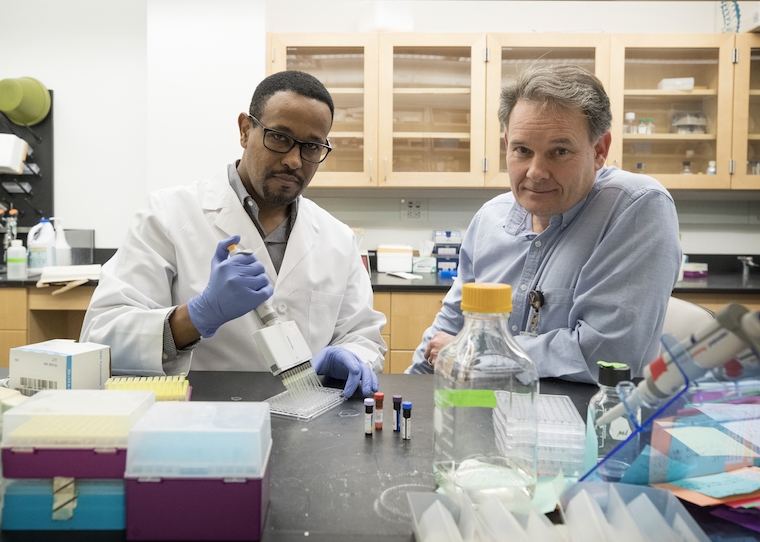Our Timothy Bullock, PhD, and his team have discovered a defect in immune cells known as “killer T cells” that explains why they struggle to destroy cancer tumors. By fixing this defect, scientists could make the cells much better at killing cancer cells. That could be very good news for the flourishing field of immunotherapy.
Despite the fearsome nickname, “killer” T cells are frequently inactive in solid tumors, and scientists have been unsure why. Dr. Bullock and his team determined that they suffer from a dysfunctional enzyme, enolase 1, that prevents them from using glucose for energy. That leaves them lethargic and ineffective.
By targeting the enzyme, the researchers believe they can give the killer T cells a big boost, turning sluggish soldiers into much more formidable fighters.
Another benefit of Dr. Bullock’s new discovery:Doctors may be able to examine the enzyme to predict how well a patient will respond to immunotherapy, helping them determine the best course of treatment. “I think that there is an opportunity to actually use this enzyme as a read-out for the quality of the T cells that are in the tumor, so that when a physician comes in with a clinical trial we can theoretically analyze how the T cells metabolically compare within the tumor,” he said. “It’s almost a biomarker of immune function and fitness within the tumors.”
If all goes well, he envisions the diagnostic test could be available in three to five years.
